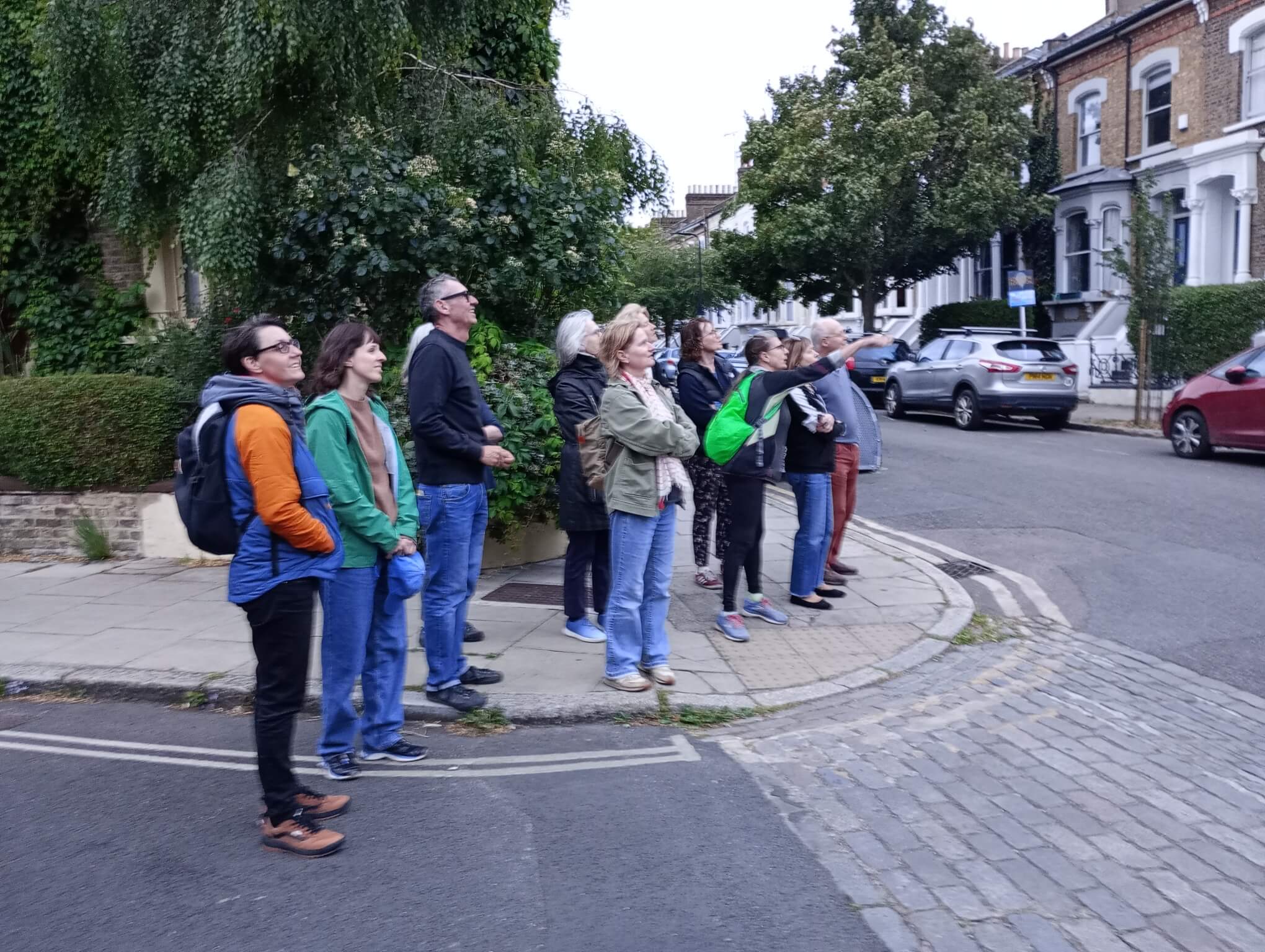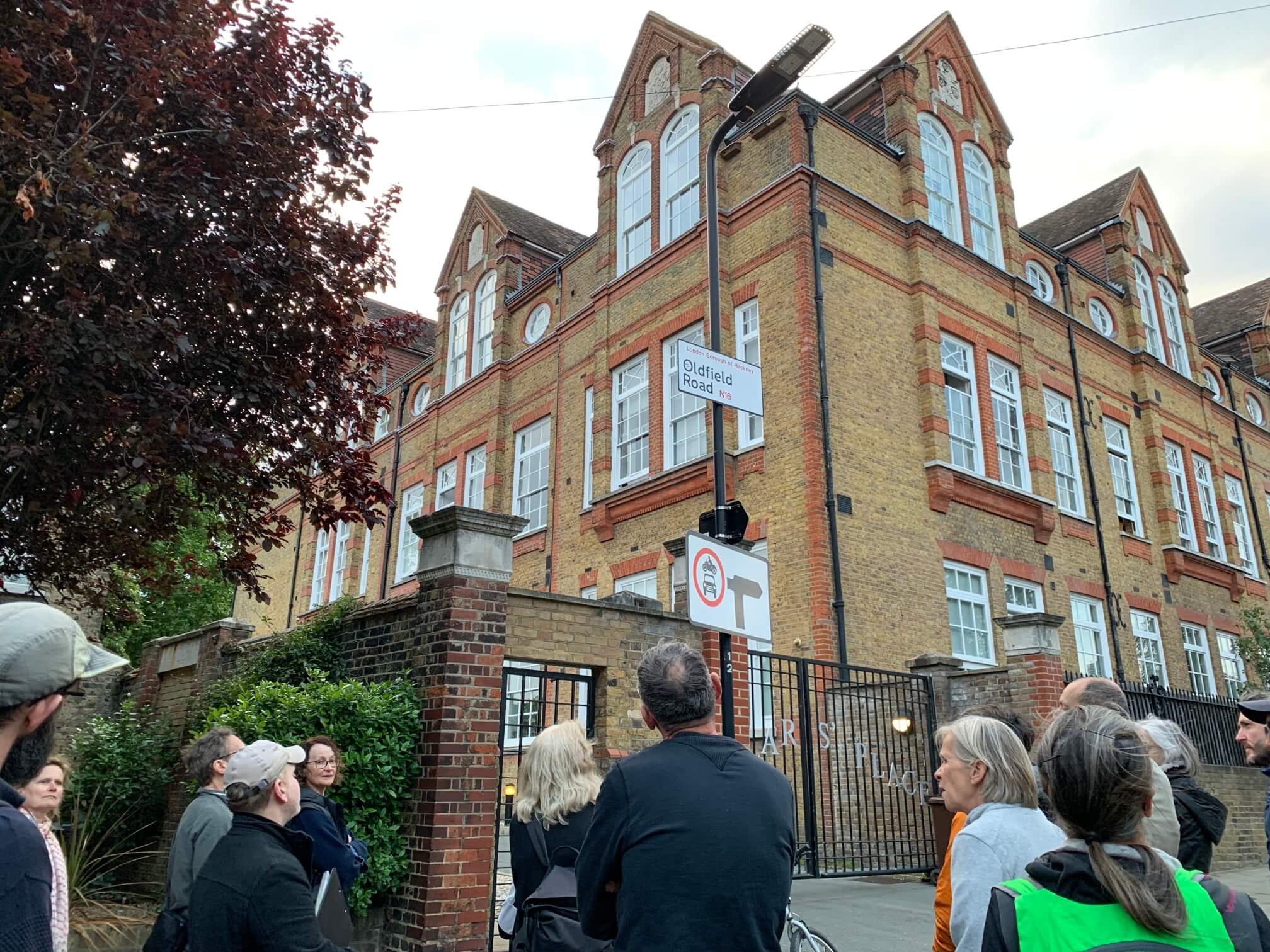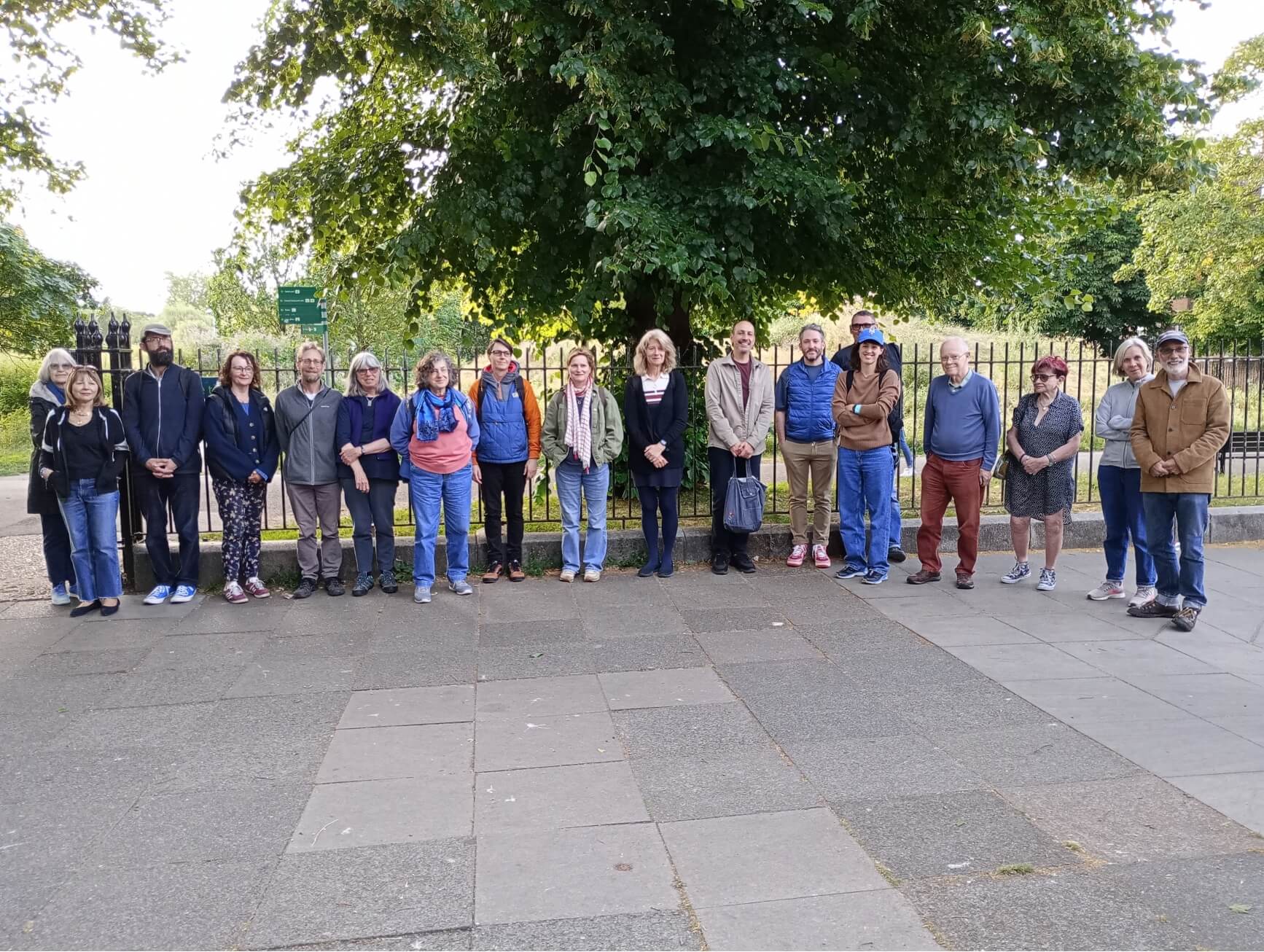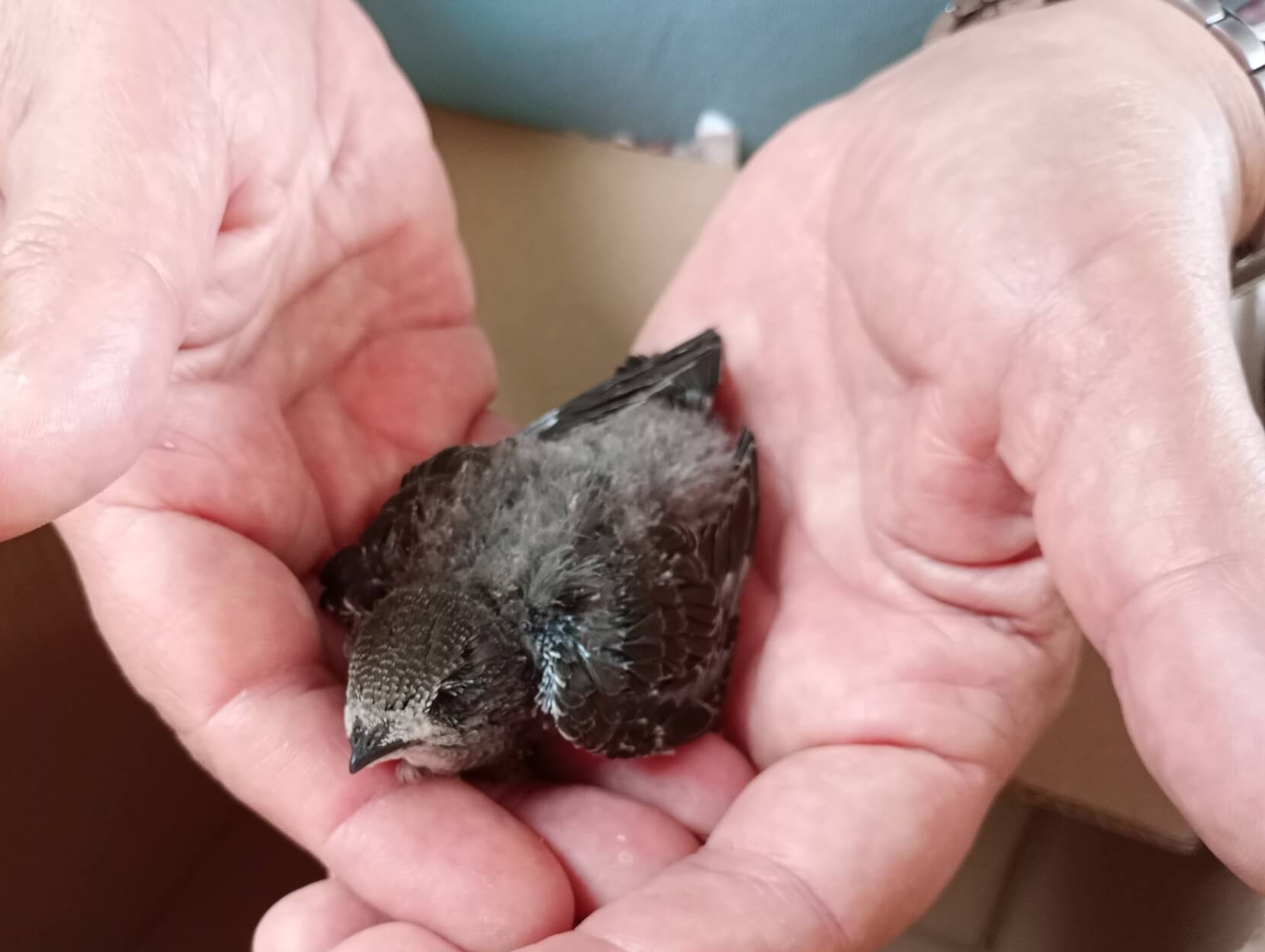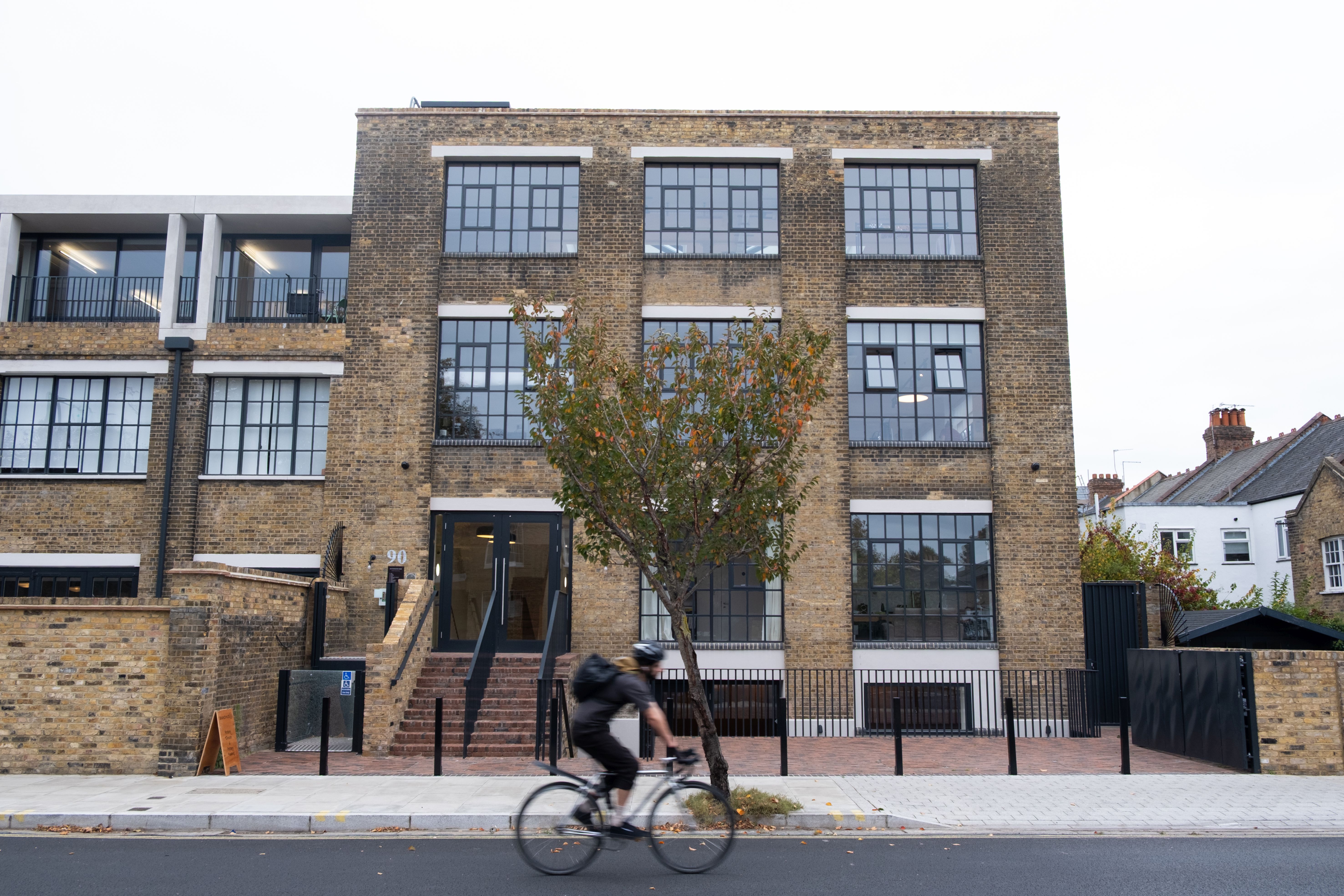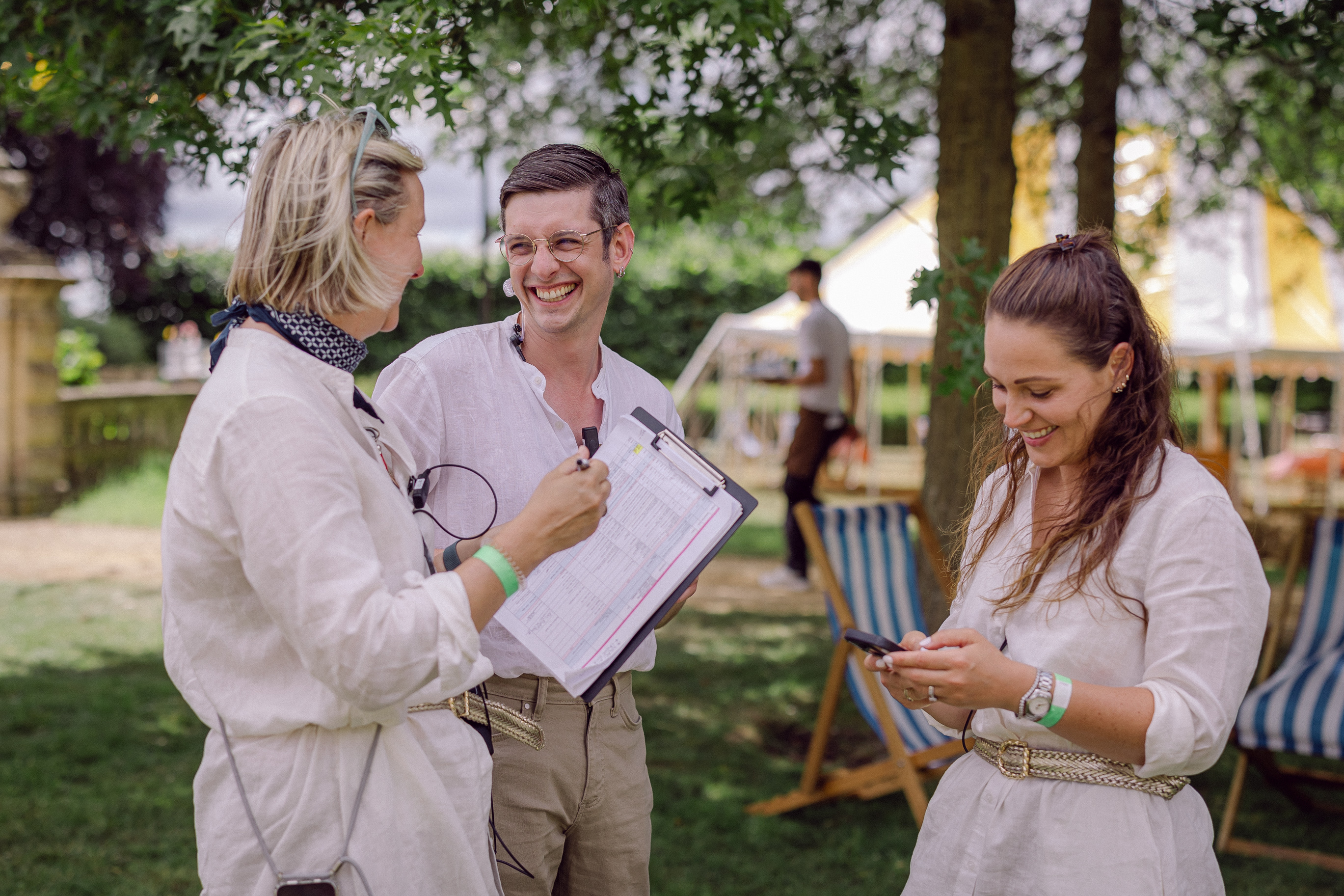6 August 2024
Saved! The swift named Jaws that crash-landed in a garden
Our work to help endangered swifts took an unusual turn when a young bird crash landed in a garden in De Beauvoir and was brought to the Estate for first aid.
The bird had been found in Southgate Road so we called in local swifts expert Mike Priaulx who took the young swift, estimated at around three weeks old, to Cockfosters on the London Underground.
From there he met with another volunteer who drove it to a specialist swift rehabilitator at Wildlife Welfare in Stevenage, Herts. The rehabilitator, Caroline, doesn't usually name birds, but this little one she called Jaws — on their first meeting he engulfed her finger!
Young swifts can survive for days without food if bad weather interrupts their parents' supply of insects, but Jaws was severely dehydrated, and the first priority was to get fluids into his tiny body.
With expert help, after just 24-hours Jaws was eating insects and well on the way to making a full recovery. Caroline said the swift was released on July 24th - weighing 42g - and was fighting fit and raring to go.
The drama came just a few days before the latest Hackney Swift Walk, organised by Mike with assistance from The Benyon Estate. Mike reports: “The walk went well. Just under 20 people came along and we saw some swifts entering nest sites, and thankfully no rain!”
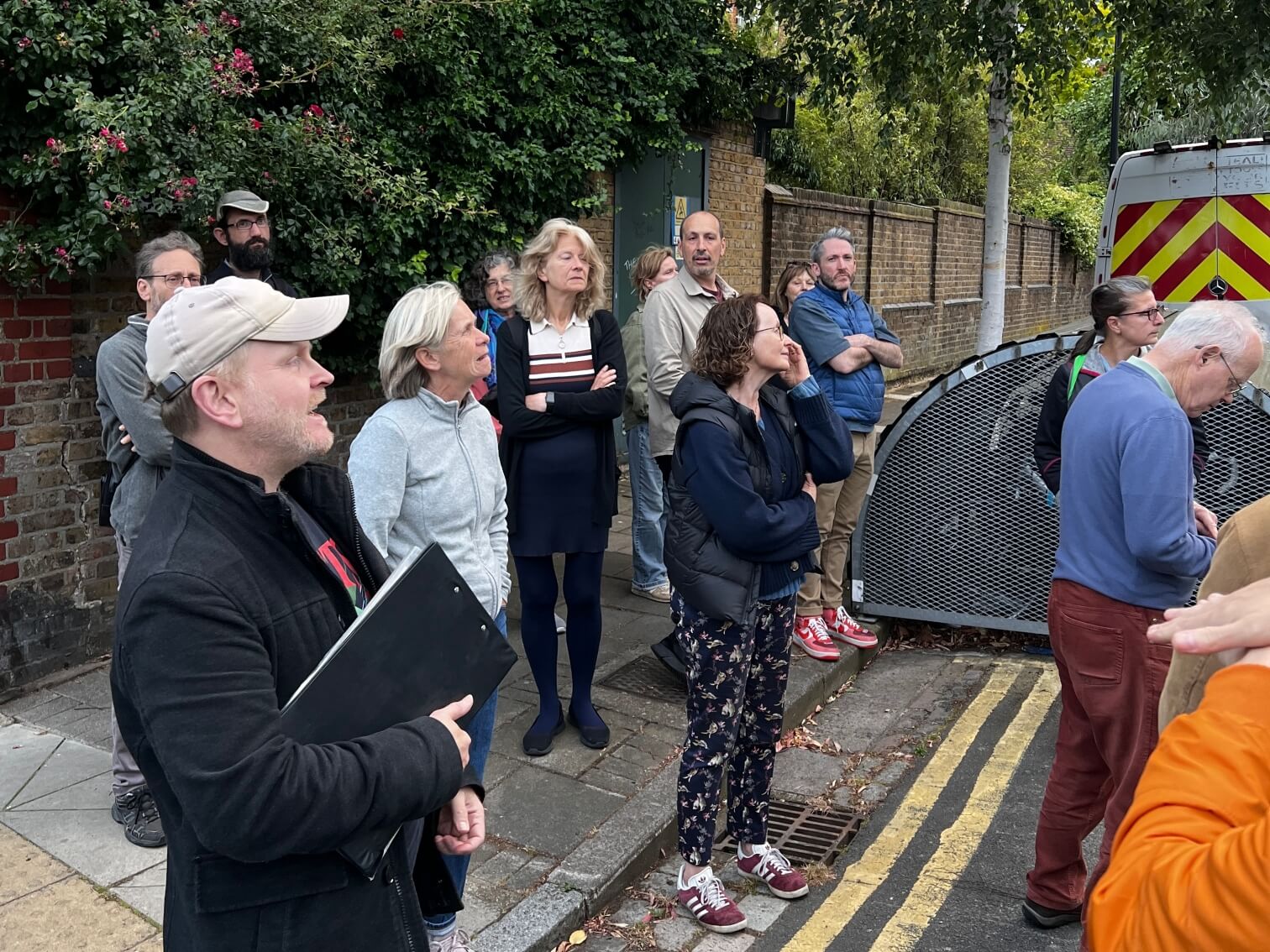
The loss of nest sites, as older buildings have roof spaces and access points for swifts closed up, has contributed to a dramatic decline in swift numbers and we are doing all we can to improve the situation.
When Estate-owned buildings in De Beauvoir require external redecoration or repairs and scaffolding is erected, in addition to taking care not to disturb any existing nest sites we take the opportunity to put up swift boxes, where appropriate.
These can take some time to be occupied by swifts – and sometimes other smaller birds temporarily move in, especially for the first year or two – but providing more opportunities for swifts to nest is vital for their long-term survival.
Swifts make the annual journey across thousands of miles from Africa to Britain to breed and are spectacular to watch in the air. They spend most of their life on the wing but if they do suffer a crash, or a young bird leaves the nest too early, they need specialist help.
Swift First Aid & Care
There is a page online, Swift First Aid & Care, which gives full details of what to do if you find a fallen swift. The birds need a quiet, warm, safe, calm and clean environment like a ventilated shoe box, away from any disturbance.
But the experts warn: “Don’t try to care for the swift yourself. It is high risk, difficult, expensive and time-consuming.”
There is a list of specialists across the country listed here: (https://www.swift-conservation.org/SwiftFirstAid.htm ) who can be contacted.
There is also a dedicated Facebook group Swift & Swallow SOS who can co-ordinate a rescue if you post a photo and location. https://www.facebook.com/groups/swiftsos/
De Beauvoir Swifts Group
For details of the walk, and to find out more about swifts in the area, follow @debeauvoirswifts on Instagram, @hackneyswifts on Twitter, or visit the group’s website here.
